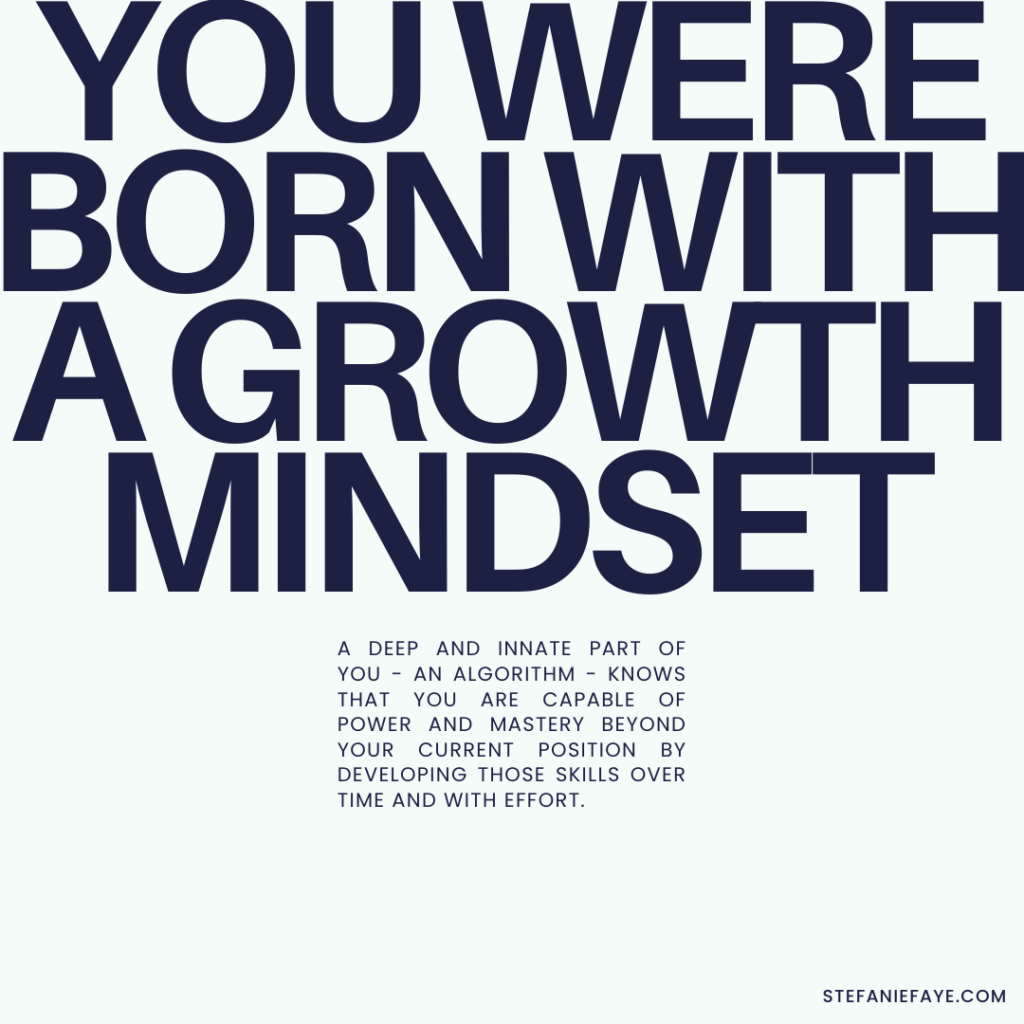
You were born with a growth mindset.
When you were first learning to speak and walk, you fell and fumbled over and over again.
But there was a part of you - an algorithm - that understood that this was part of the process and that you would develop those skills over time and with effort.
But then things changed. You interacted more and more with the people around you. People who had their own beliefs and internal working models of what is possible, how the world works, and what is worth putting effort into. As they reacted to life - to their own mistakes, to others shortcomings, you started to take that in as data for our own algorithms. This may have led you to start seeing mistakes, awkwardness as signs of weakness, and signs that whatever you were aiming to do wasn't worth the effort because you weren't born being good at it.
Imagine if you had that same mindset when you were learning to walk or talk? That at the first sign of effort and struggle, you decided it wasn't worth the effort because you were incapable of getting better at it? Luckily, you didn't. Your mindset was growth-oriented. It included the idea that effort, perseverance, mistakes and perseverance were part of an ongoing, long-term process toward change and growth.
We can back in touch with that empowered aspect of our mind. Doing so can change our life in profound ways.
Mindsets have the power to transform behaviors, trajectories and entire systems. 🧠
A mindset is a way of seeing. It is directed by electrochemical firing patterns in the brain that we've used repeatedly. Those patterns direct what we pay attention to, what we notice, how we believe the world operates.
These patterns develop in large part based on the mindsets of people around us - how they talk about whether change is possible, whether people are the way they are and there's nothing that can be done.. or whether they see things as changeable and upgrade-able.
We can update those electrochemical firing patterns by noticing our own growth and by paying attention to others who are modeling what it looks like to persevere, adapt, build, create - despite anything that has happened in the past.
That is the essence of growth mindset. It's a pillar of everything I have taught and embodied when it comes to learning about how our brains function.
Learn how to apply growth mindset to your own life and use its power to help others in Season 4 Episode 1 of the Mindset Neuroscience Podcast.
And check out these two videos:
Neuroscience of Growth Mindset: How the Past Affects the Present
3 Ways Growth Mindset Improves Performance
#growthmindset #neuroscience #neuroplasticity #healing


